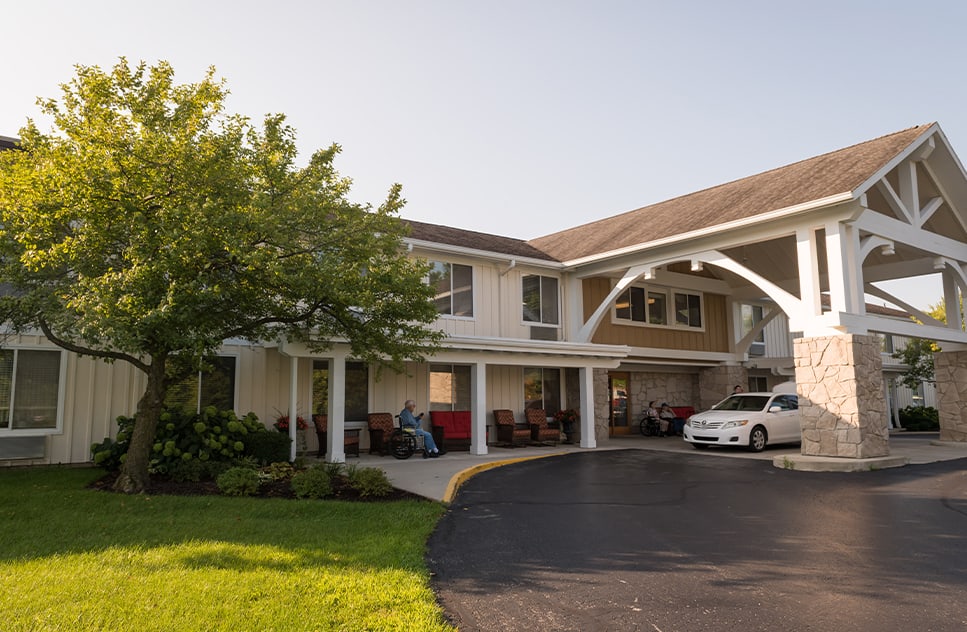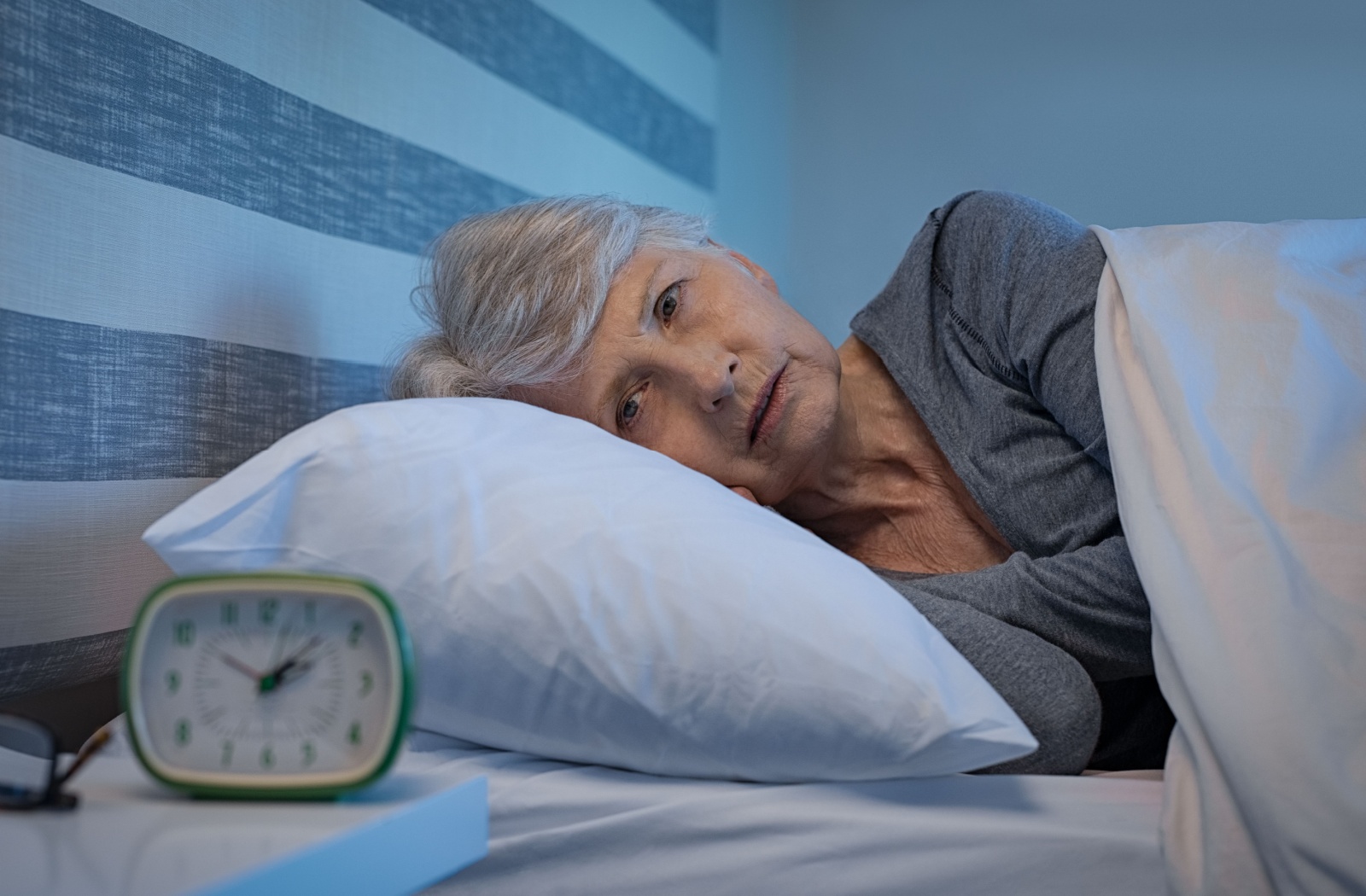Sleep is one of the most crucial parts of a healthy and active lifestyle. However, restful nights can feel out of reach for many older adults.
Seniors often encounter issues like waking up frequently during the night or struggling to fall asleep. While many causes of poor sleep are a part of normal aging, a lack of rest can quickly impair your loved one’s everyday life.
Sleep difficulties could simply be due to environmental or lifestyle factors, though that’s not always the case. Sometimes, significant sleep challenges indicate a serious underlying issue that requires professional support.
You can help a loved one maintain their quality of life by understanding when they struggle with their sleep and overall health.
Why Healthy Sleep Is So Important for Seniors
Getting enough quality sleep every night is one of the most important parts of staying healthy. Rest benefits seniors in several ways, helping them feel their best and live independently.
Healthy sleep offers significant benefits to seniors, as it:
- Helps improve memory & cognitive function
- Enhances mood & emotional well-being
- Strengthens the immune system to prevent illnesses
- Supports physical healing & recovery
- Reduces the risk of falls by improving alertness & coordination
When seniors consistently get good sleep, it directly boosts their everyday quality of life.
Why Do Seniors Often Struggle with Sleep?
Sleep patterns naturally change as we age. Sometimes, these changes are minor, but other times, they may lead to lighter and less restorative rest. Combined with other factors, these shifts can create ongoing disruptions for older adults.
Medical Conditions
Many medical conditions can disrupt seniors’ sleep, including both physical and mental health challenges. Some common examples include:
- Sleep apnea
- Interrupts breathing during rest & affects sleep quality
- Dementia & sundowning
- Confusion & disorientation prevent a normal sleep routine
- Arthritis or chronic pain
- Causes difficulty relaxing & falling asleep
- Heart disease
- Often causes discomfort or shortness of breath
- Anxiety or depression
- Affects mental calmness & makes it difficult to fall asleep
- Restless leg syndrome (RLS)
- Triggers the need to move around
- Nocturia
- Frequent nighttime urination makes it difficult to stay asleep
If you suspect your loved one is living with one of these conditions, visit a healthcare professional. A proper diagnosis is the first step to finding relief.
Medication Side Effects
Medications that many seniors rely on can also contribute to sleep problems. Some common culprits include:
- Antidepressants
- Beta-blockers
- Corticosteroids
- Diuretics
- Asthma medications
- Blood pressure medications
Discussing alternatives or timing adjustments with a doctor can help when sleep issues begin after starting a new medication.
Age-Related Sleep Pattern Changes
Natural changes in aging include shifts in sleep patterns. These can make it challenging to stay well-rested. Seniors may:
- Spend less time in deep sleep stages, making sleep feel less refreshing
- Wake up more frequently during the night, preventing deep sleep
- Experience earlier bedtimes & wake-ups due to changing “internal clocks”
- Produce lower melatonin levels, the hormone that regulates rest
These shifts are normal but can leave seniors feeling tired during the day.
Environmental Factors
A person’s sleep environment plays an essential role in nighttime comfort. For seniors, common disruptions include:
- Noise disturbances from pets, traffic, or televisions
- Temperatures that are too hot or cold for comfortable rest
- Light exposure from electronics or outside sources
- Bedding that lacks proper support for joints or the back
- Partners or pets unintentionally interrupt sleep
Making the bedroom peaceful and supportive for rest is an excellent step towards deeper sleep.
Lack of Activity & Routine
Regular movement and a structured routine during the day are closely tied to sleep patterns. Without these, seniors may not feel naturally tired at bedtime.
Some common culprits include:
- Limited physical exercise during the day
- Irregular daily schedules or inconsistent routine
- Long daytime naps, disrupting nighttime sleep
- Lack of exposure to natural sunlight
These everyday habits directly influence your sleep habits.
Dietary & Evening Habits
What seniors consume in the hours leading up to bedtime can significantly affect how well they sleep. Some popular factors affecting sleep include:
- Drinking caffeine, such as in coffee or tea, late in the day
- Consuming alcohol, which may initially feel relaxing but disrupts sleep later
- Eating heavy, spicy meals that result in discomfort or indigestion overnight
- Not drinking enough water, leading to muscle cramps or headaches
Small adjustments in diet and evening habits can make bedtime and rest smoother.

Tips for Seniors to Improve Sleep Quality
Even though sleep challenges are common, there’s good news. Small, targeted changes can create major improvements in sleep quality for seniors.
Create a Consistent Bedtime Routine
Encourage calming activities such as light reading, soothing music, or warm baths before bed. Sticking to the same sleep and wake times reinforces the body’s sleep rhythm.
Limit Screen Time Before Bed
Blue light from phones, tablets, and TVs suppresses melatonin production. Turning off screens at least 1 hour before bed can help.
Add Gentle Daily Exercise
Walking, stretching, or even chair yoga can improve sleep quality. However, make sure to avoid strenuous activities in the evening.
Cognitive Behavioral Therapy for Insomnia (CBT-I)
For persistent insomnia in seniors, working with a professional to change unhelpful thoughts or behaviors around sleep can make a significant difference.
Create a Comfortable Sleep Environment
Make the bedroom inviting for rest by using blackout curtains, white noise machines, or comfortable bedding. Keeping the space slightly cooler can also encourage deeper sleep.
Experience Community Living for a Healthier Life
Sleep plays a central role in physical, mental, and emotional health. Though many older adults face sleep challenges, these small changes can make a significant difference.
Your loved one deserves to feel supported at all times, and our team at Kingston Residence of Fort Wayne is ready to help.
We’re proud to offer a comfortable, convenient, and supportive community. Our incredible team works closely with residents and their families to make sure every night is cozy, relaxed, and supported. Schedule a visit today to learn how we can enrich your loved one’s quality of life.






